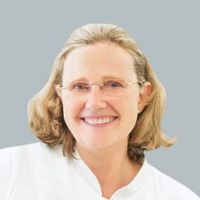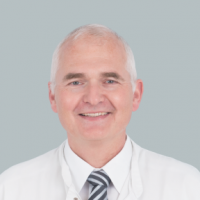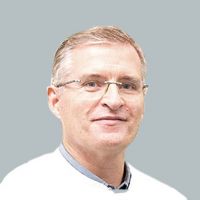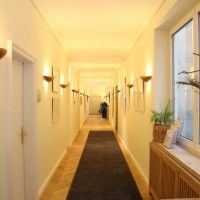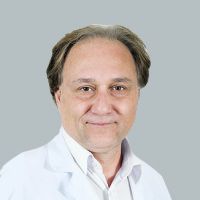Dizziness is not a disease in itself, but rather a symptom of diseases associated with the sense of balance. Specialized vertigo centers therefore often belong to departments of Otolaryngology and Neurology. But what actually happens when dizziness occurs, how is it diagnosed and, above all, what treatment options are available?
Recommended specialists
Article overview
Vertigo Center - Further information
For more balance: The vertigo center
A classic distinction is made between staggering vertigo, lift vertigo and rotary vertigo. Staggering vertigo usually occurs as a result of tension, stress and anxiety, headaches or migraines. With lift vertigo, those affected have the feeling of being pulled up in an elevator or of sinking down.
The rotary vertigo, which often points to more serious illnesses, must be separated from this. The characteristic feature of the rotary vertigo is that the feeling of vertigo moves clockwise or counterclockwise, which indicates an involvement of the vestibular system in the inner ear.
What diagnoses are possible?
Sudden dizziness should always be examined at a nearby hospital as soon as possible, because it could also be a stroke.
Recurrent or prolonged dizzy spells, on the other hand, should be treated by an otolaryngologist or a neurologist. For this purpose, many cities already have specialized vertigo centers where patients with vertigo symptoms can be examined and treated on an interdisciplinary basis.
Frequent causes of rotary vertigo include meniere's disease, inflammation of the organ of equilibrium, position-related dizziness, alcohol consumption, trauma due to blow injuries, epilepsy, migraine attacks and circulatory disorders in the brain stem.
Vertigo diagnostics using numerous validated test methods
Various test methods are available today to examine the vestibular system. The following methods are most commonly used:
- Clinical investigation,
- Blood pressure reading,
- Tuning fork test,
- Otoscopy,
- Nystagmus test (test for fast, uncontrolled eye movements),
- Romberg test (test for stability),
- Finger-nose test,
- Diadochokinesis (successive opposite motion sequences)
How is dizziness treated?
Chronic dizziness, which can particularly occur in old age, can be treated either with medication or with specific exercises from neurofeedback. Specialized vertigo therapy using neurofeedback leads to long-term absence of vertigo, as numerous studies have shown. Very old patients benefit in particular from so-called combination therapies, consisting of medication and movement exercises.
In contrast to chronic rotary vertigo, acute rotary vertigo, such as Meniere's disease, can also occur. Such illness-related vertigo attacks can usually be controlled very well with medication at first. Later, however, surgical vertigo therapy may be necessary. Such surgeries are performed at specialized vertigo centers throughout Germany.
Experts for vertigo therapies
Approved vertigo centers are usually a part of neurology centers or clinics for ear, nose and throat medicine (ENT). The specialists for vertigo therapy who work there have completed specialist training as ENT doctors or neurologists. The team at the vertigo centre is usually made up of multidisciplinary specialists and includes neurologists and ENT specialists as well as non-physician groups of therapists.
For patients, this means comprehensive care and, if necessary, fast rehabilitation. In addition, specialist centers for vertigo pool current research knowledge and thus enable an optimal care of patients with vertigo attacks or chronic vertigo according to the current requirements.
References
- Deutsche Gesellschaft für Hals-Nasen-Ohren-Heilkunde, Kopf- und Hals-Chirurgie e.V.
- DocCheck Flexikon „Schwankschwindel“ [letzter Zugriff: 02.03.2019]
- https://hno-informationen.de/de/unsere-schwerpunkte/schwindel/ [letzter Zugriff am 02.03.2019]




